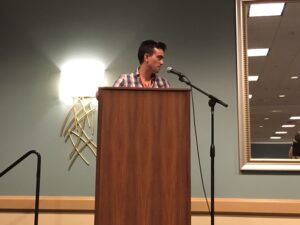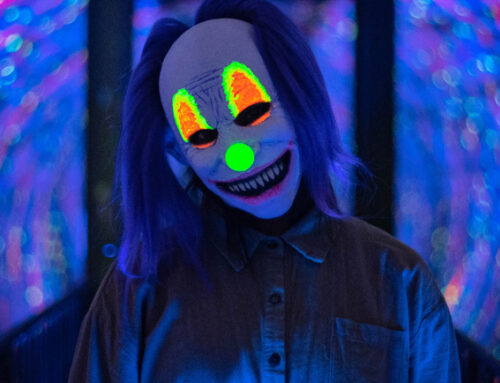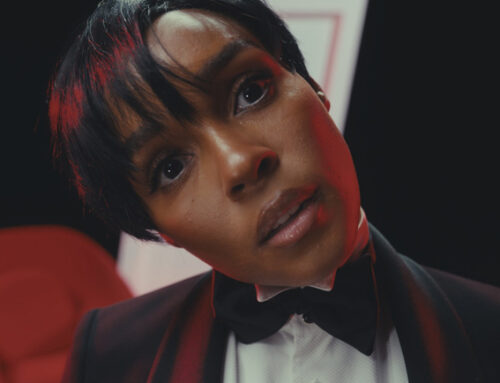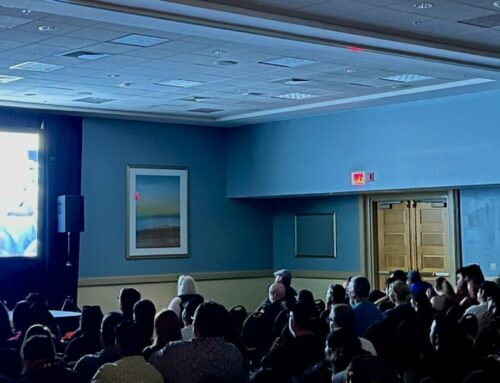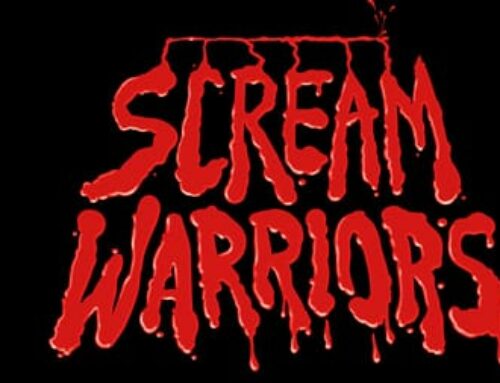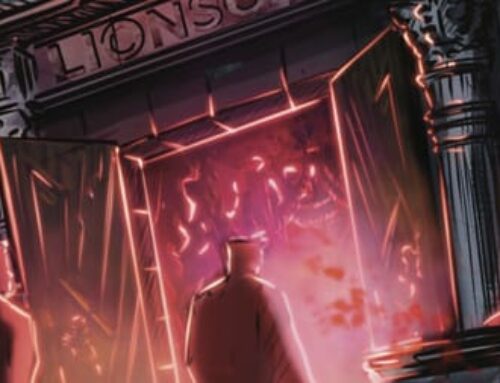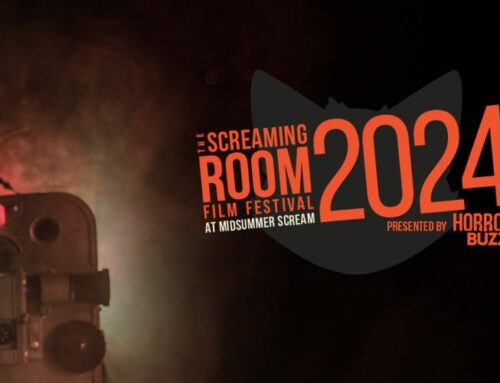What makes a great immersive experience or haunt? Some would argue it is the set design, something allows you to feel like you are actually in whatever world you are meant to be. Others may say it’s the story, wrapping you up so tight that you believe you are living it.
I, however, firmly believe that is the actors that can make or break the experience for you. You need to feel that connection, that closeness to them, so they can pull you in and make you feel their pain, their sorrow, their emotion.
I am clearly not alone in that choice, because when Midsummer Scream asked Abel Horwitz what he would like to do for a panel, he quickly suggested talking to haunt actors. He recounted this at the beginning of Baring Your Soul: Actors Behind the Screams, which spoke to four individuals that I have had the pleasure of “meeting in the dark” at some point or another.
First up was Jana Wimer, whom talked about what she looks for when casting actors, specifically for Zombie Joe’s Urban Death.
“Total fearlessness is a big thing,” Wimer said. “We need people who aren’t timid or shy, and can fully commit.” She went out to talk about how she can usually tell within five seconds if a person is a good actor or not. She also explained the needed for more range in actors in the haunt community.
“You can only cast so many hot 20 year olds,” she joked, before wishing for more 40 and above actors, of all shapes and sizes, to fill roles for Urban Death.
“I’d cast 10 year olds if they let me!” she also said.
Next up was Hannah Kaplan, who said she loves horror films, and that is how she got into scare acting.
“The adrenaline rush, and then the relief, and the release of laughter that doesn’t stop, that’s what I love about it,” Kaplan said.
She talked about how she focuses on the audience, and responds to their reactions in character. She credits her improv background with being able to do this. She feels like if you can’t scare them, you should at least make them laugh so they walk away with something.
A big scaredy cat herself, her moment of zen came when working Universal Halloween Horror Nights in 2007, when backstage, Leatherface came up to her and politely asked if she was sitting on his bag.
“That was when I realized there was people behind the mask, there was a human element of it,” she said.
Dasha Kittredge, whom most would recognize from Delusion, likes to get as close to reality as possible while in character. Whether that means calling someone by name, or just learning about them and using it in some way, it helps make the performance more real. She loves to blur that line, and make the audience question if it is a real moment, or something within the show.
“I love immersive theater because I get that eye contact, that immediate reaction from people. You don’t get that on a film, so it is great to see first hand,” Kittredge said.
To prepare for her roles, she goes into a lot of research. She didn’t know much about the world of mediums for Sinister Pointe’s Séance, but researched it heavily, and came out with a newfound respect for it. She also goes out of her way to find objects and props that her character might have, and makes them part of her character, to make it more real.
“Also, vocal warm ups help a lot, especially when doing the same scene over and over again the same night,” she said.
She also spoke a bit about her proof of concept film, IMAGINARIA, which you can find out more about here.
Benjamin Michael Marsh was last, but certainly not least. Despite acting in challenging shows such as Blackout, Ben admitted that public speaking terrifies him more than anything else he has done. He went through Blackout in 2012 for the first time, and immediately came out of it, asking to speak to the creators because he wanted to be a part of it. Within a day, he had met with Josh Randall, and was working as a swing actor for the male roles.
“I feel as if these intense, personal scenes I have done in Blackout not only helped me as a performer, but also as a person. They help me overcome my own fears and anxieties,” Marsh said.
Ben started his career as a scare actor when, after working in Dora’s Sing-Along at King’s Island, he was invited to join their haunt event. He was hesitant at first, but wound up loving it. Now, he acts in as The Mummy at Universal, at the Virus escape room, and would not disclose where he would be come Halloween.
Abel moderated the panel expertly, weaving his own experiences as a haunt actor into the discussion, and talking about his own actors with those on the panel. Overall, it was a very interesting look into the actor’s mind, to see where they get their inspirations from when they inhabit these roles we all come to love. I already had a great respect for them all, but this broaden it a bit more.

